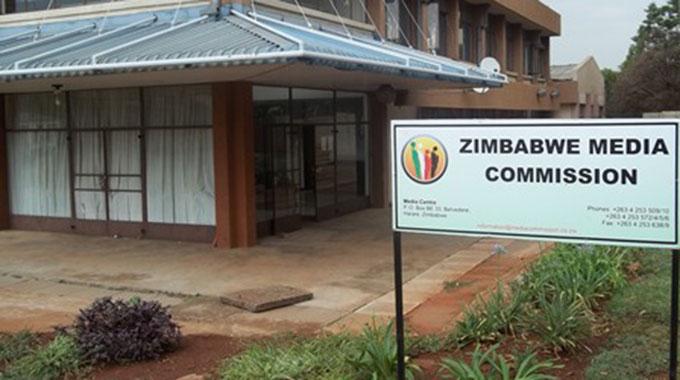News / National
Zimbabwe aims to stop fake news with new policy
20 Aug 2025 at 08:08hrs |
0 Views

The Zimbabwean government is developing a national media and information literacy policy as part of broader efforts to counter misinformation and promote critical thinking among citizens.
Chief director for government messaging and programmes in the Ministry of Information, Publicity and Broadcasting Services, Jonathan Gandari, revealed this on Tuesday while addressing a two-day Media and Information Literacy Policy Validation Workshop convened by the Zimbabwe Media Commission (ZMC) in Bulawayo.
"There is an urgent need for a media literate society. It is our drive for a collective effort to construct an informed, responsible and critically engaged system," Gandari said.
He stressed that the policy is linked to the country's National Development Strategies (NDS 1 and NDS 2), which seek to transform Zimbabwe into an upper middle-income economy by 2030. A knowledgeable and media-savvy society, he said, was vital to achieving that goal.
"A knowledgeable society will be responsible for creating a vibrant economy. Without broad-based information literacy, economic transformation will be unattainable," Gandari warned.
Zimbabwe's media literacy initiative is also aligned with the country's participation in the African Peer Review Mechanism under the African Union, which currently emphasises economic development.
"So, this is in line with our Vision 2030. Zimbabwe is open for business, in line with the President's philosophy of building this country with our own hands, step by step. Brick by brick, stone upon stone," Gandari added.
He noted that the digital landscape shaped by the Fourth Industrial Revolution demands citizens who can think critically and identify disinformation.
"The technology that we have in the fourth industrial revolution requires a citizen, a new character, who is critical in thinking, who clicks wisely, who is able to see through misinformation, disinformation, lies, hate, propaganda," he said.
Gandari also highlighted the dangers of misinformation, pointing to human trafficking schemes and youth recruitment scams as examples of how false or misleading information can have devastating real-world consequences. Vulnerable groups such as students, job seekers, and patients, he said, were especially at risk when unable to verify information.
He urged stakeholders to carefully consider what should be included in the policy framework, noting that the United Nations Educational, Scientific and Cultural Organization (UNESCO) has already issued guidelines that Zimbabwe could draw from.
Chief director for government messaging and programmes in the Ministry of Information, Publicity and Broadcasting Services, Jonathan Gandari, revealed this on Tuesday while addressing a two-day Media and Information Literacy Policy Validation Workshop convened by the Zimbabwe Media Commission (ZMC) in Bulawayo.
"There is an urgent need for a media literate society. It is our drive for a collective effort to construct an informed, responsible and critically engaged system," Gandari said.
He stressed that the policy is linked to the country's National Development Strategies (NDS 1 and NDS 2), which seek to transform Zimbabwe into an upper middle-income economy by 2030. A knowledgeable and media-savvy society, he said, was vital to achieving that goal.
"A knowledgeable society will be responsible for creating a vibrant economy. Without broad-based information literacy, economic transformation will be unattainable," Gandari warned.
"So, this is in line with our Vision 2030. Zimbabwe is open for business, in line with the President's philosophy of building this country with our own hands, step by step. Brick by brick, stone upon stone," Gandari added.
He noted that the digital landscape shaped by the Fourth Industrial Revolution demands citizens who can think critically and identify disinformation.
"The technology that we have in the fourth industrial revolution requires a citizen, a new character, who is critical in thinking, who clicks wisely, who is able to see through misinformation, disinformation, lies, hate, propaganda," he said.
Gandari also highlighted the dangers of misinformation, pointing to human trafficking schemes and youth recruitment scams as examples of how false or misleading information can have devastating real-world consequences. Vulnerable groups such as students, job seekers, and patients, he said, were especially at risk when unable to verify information.
He urged stakeholders to carefully consider what should be included in the policy framework, noting that the United Nations Educational, Scientific and Cultural Organization (UNESCO) has already issued guidelines that Zimbabwe could draw from.
Source - NewZiana
Join the discussion
Loading comments…































